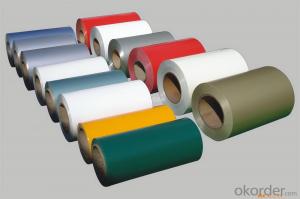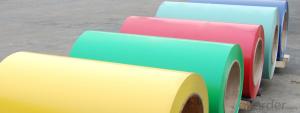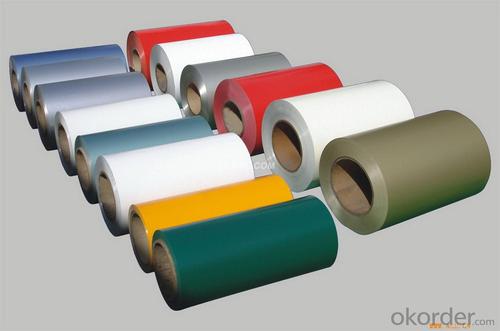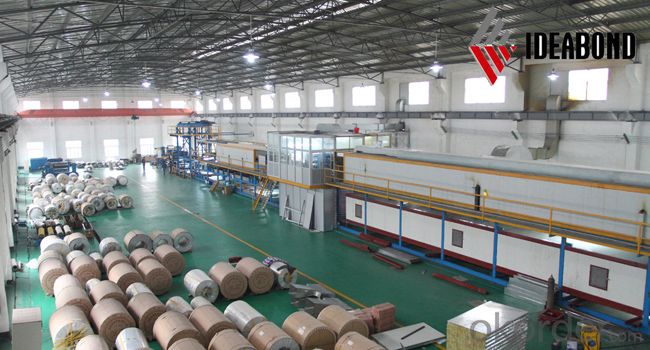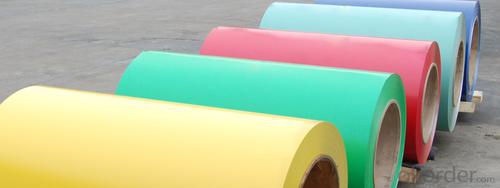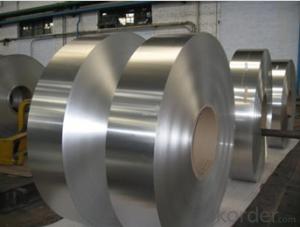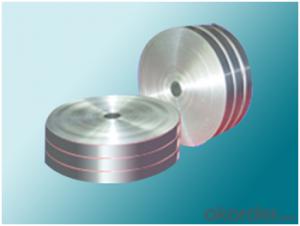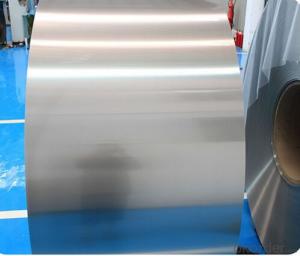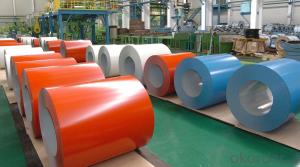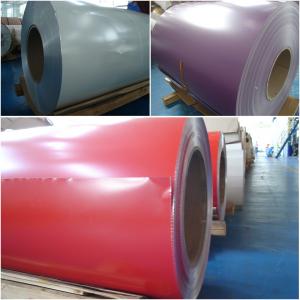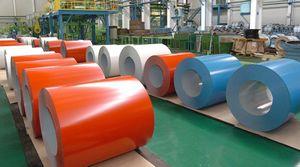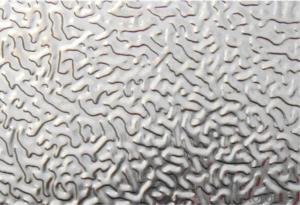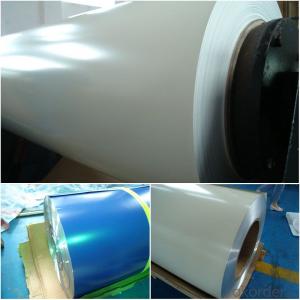Wholesale PVDF AA3105 Coated Stucco Embossed Aluminum Sheet Foil Coil
- Loading Port:
- Shanghai
- Payment Terms:
- TT OR LC
- Min Order Qty:
- 20 m.t.
- Supply Capability:
- 800000 m.t./month
OKorder Service Pledge
Quality Product, Order Online Tracking, Timely Delivery
OKorder Financial Service
Credit Rating, Credit Services, Credit Purchasing
You Might Also Like
supply Mill-finished / coated aluminum sheet/ coil:
Alloy: AA1050,1060,1100,1200,2024,3003,3304,3005,3015,5052,5086,5754,5083,6061,7050,7475,8011, etc
Temper: O, H14/16/18/22/24/32/ H112/H321/T6,T851,T7451,T7351, etc
Thickness: 0.02mm—20mm
Width: 100mm—2000mm (Can be slitted)
Notice: PE coating / PVDF coating / Embossment can be done if required.
- Q: Can aluminum coils be used in the production of heat shields?
- Heat shields can indeed be made using aluminum coils. Aluminum is a preferred option for heat shields because of its exceptional thermal conductivity, lightweight characteristics, and ability to reflect radiant heat effectively. Typically, heat shields are designed to safeguard delicate components or structures from excessive heat generated by engines, exhaust systems, or other sources. By shaping and sizing aluminum coils, one can create efficient heat shields that disperse heat and prevent its transfer to surrounding areas. Furthermore, aluminum exhibits corrosion resistance, making it suitable for applications where heat shields may encounter harsh environments or chemicals. All in all, aluminum coils are an appropriate material choice for producing heat shields due to their thermal properties, adaptability, and long-lasting nature.
- Q: Is it possible to use a crowbar as a tool for opening an aluminum coil?
- <p>While a crowbar can be used to apply force to open various objects, it may not be the most suitable tool for opening an aluminum coil. Aluminum coils can be sharp and using a crowbar could lead to injury or damage to the coil. It's recommended to use gloves and a pair of pliers or a coil cutter specifically designed for handling aluminum coils to ensure safety and avoid damaging the material.</p>
- Q: How do aluminum coils compare to magnesium coils in terms of strength?
- Aluminum coils generally have higher strength compared to magnesium coils. Aluminum is known for its excellent strength-to-weight ratio, making it a popular choice in various industries. It has a higher tensile strength and better resistance to deformation under stress compared to magnesium. Additionally, aluminum has a higher yield strength, which means it can withstand greater loads before experiencing permanent deformation. On the other hand, magnesium is lighter than aluminum, but it tends to have lower strength properties. While magnesium coils might be advantageous in some applications where weight is a critical factor, aluminum coils are generally preferred in terms of strength and durability.
- Q: Are there any limitations to using aluminum coils?
- Using aluminum coils comes with several limitations. Firstly, their cost is higher compared to other materials like copper, which can be a constraint for those with budget constraints. Secondly, aluminum coils have lower thermal conductivity than copper coils. This means they are less efficient at transferring heat, resulting in decreased performance in some applications. In addition, aluminum is more prone to corrosion and oxidation than other materials. This limitation is particularly relevant in highly corrosive environments, like coastal areas or industrial settings. Moreover, aluminum coils are generally unsuitable for high-pressure applications. They are more likely to experience leaks or failures under high pressure, which restricts their use in certain HVAC systems or refrigeration units. Lastly, aluminum coils are less malleable than copper coils, making them more challenging to handle during installation or repair. This can lead to increased labor costs or potential damage to the coils during handling. Overall, although aluminum coils have advantages like being lightweight and environmentally friendly, their limitations must be carefully considered based on the specific application and requirements.
- Q: What are the regulations and standards governing the production of aluminum coils?
- The regulations and standards governing the production of aluminum coils vary depending on the country and region. However, some common regulations and standards include those related to environmental protection, occupational health and safety, quality control, and product specifications. These regulations aim to ensure that the production process is carried out in a safe and sustainable manner, and that the produced aluminum coils meet the required quality and performance standards. Compliance with these regulations and standards is crucial for manufacturers to maintain the integrity and market acceptance of their products.
- Q: What is the coefficient of thermal expansion of aluminum coils?
- The coefficient of thermal expansion of aluminum coils is typically around 23 x 10^-6 per degree Celsius.
- Q: Are aluminum coils resistant to oil and grease?
- Yes, aluminum coils are generally resistant to oil and grease.
- Q: This question asks for the current market price of aluminum coils.
- <p>The price of aluminum coils can vary significantly based on factors such as grade, thickness, width, and market conditions. As of my last update, prices fluctuate daily due to global supply and demand, economic indicators, and geopolitical events. For the most accurate and up-to-date pricing, it's best to consult with metal suppliers or check commodity exchanges like the London Metal Exchange (LME). Prices are typically quoted in dollars per metric ton and can range from a few thousand to several thousand dollars depending on the aforementioned factors.</p>
- Q: What are the different types of edge conditions for aluminum coils?
- There are several types of edge conditions for aluminum coils, including slit edge, mill edge, deburred edge, round edge, and beveled edge. Each type has specific characteristics and is used for different applications in industries such as construction, automotive, and aerospace.
- Q: What are the different finishes available for aluminum coils?
- Aluminum coils offer a variety of finishes, each with its own unique properties and appearance. 1. The most basic and commonly used finish for aluminum coils is the mill finish. It showcases the natural appearance of aluminum without any additional treatment or coating. While it provides a smooth and shiny surface, it is not as resistant to corrosion as other finishes. 2. Anodized finishes, on the other hand, enhance the corrosion resistance and durability of aluminum through an electrochemical process. This creates a thick protective layer on the surface of the coil, making it highly resistant to weathering, scratches, and fading. Anodized finishes are available in different colors and can be customized to meet specific design requirements. 3. To achieve specific colors, textures, and levels of durability, aluminum coils can be painted with various types of coatings. These coatings are applied using a coil coating process, ensuring even distribution and curing onto the surface of the aluminum. Painted finishes offer excellent color retention and weather resistance, and can be tailored to suit individual project needs. 4. For a textured appearance, the surface of the aluminum coil can be mechanically brushed using abrasive materials. This creates a brushed finish, which not only provides a unique aesthetic appeal but also helps hide scratches and blemishes. Brushed finishes are commonly used in architectural applications like interior design, signage, and furniture. 5. Embossing involves imprinting patterns or designs onto the surface of the aluminum coil, resulting in an embossed finish. This adds texture and visual interest to the material, making it suitable for decorative purposes. Embossed finishes can mimic various textures, such as wood grain or stucco, and are widely used in building facades, roofing, and signage. 6. Laminating involves bonding a layer of protective film or sheet onto the surface of the aluminum coil. This laminated finish provides additional protection against scratches, stains, and UV rays. It is commonly used in applications that require high durability, such as transportation, appliances, and electronic enclosures. Ultimately, the choice of finish for aluminum coils depends on specific project requirements, including aesthetics, durability, and environmental factors.
Send your message to us
Wholesale PVDF AA3105 Coated Stucco Embossed Aluminum Sheet Foil Coil
- Loading Port:
- Shanghai
- Payment Terms:
- TT OR LC
- Min Order Qty:
- 20 m.t.
- Supply Capability:
- 800000 m.t./month
OKorder Service Pledge
Quality Product, Order Online Tracking, Timely Delivery
OKorder Financial Service
Credit Rating, Credit Services, Credit Purchasing
Similar products
Hot products
Hot Searches
Related keywords
